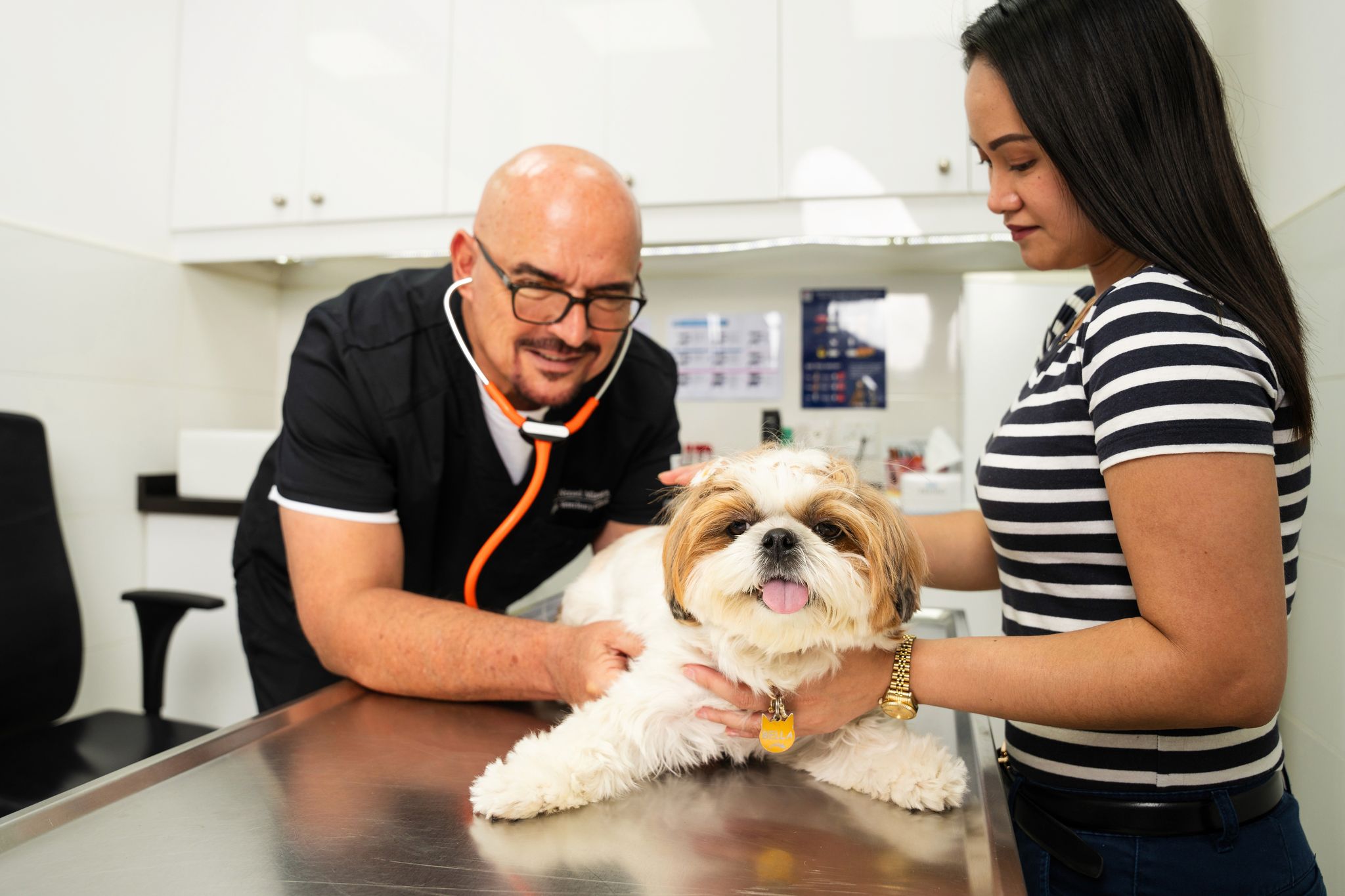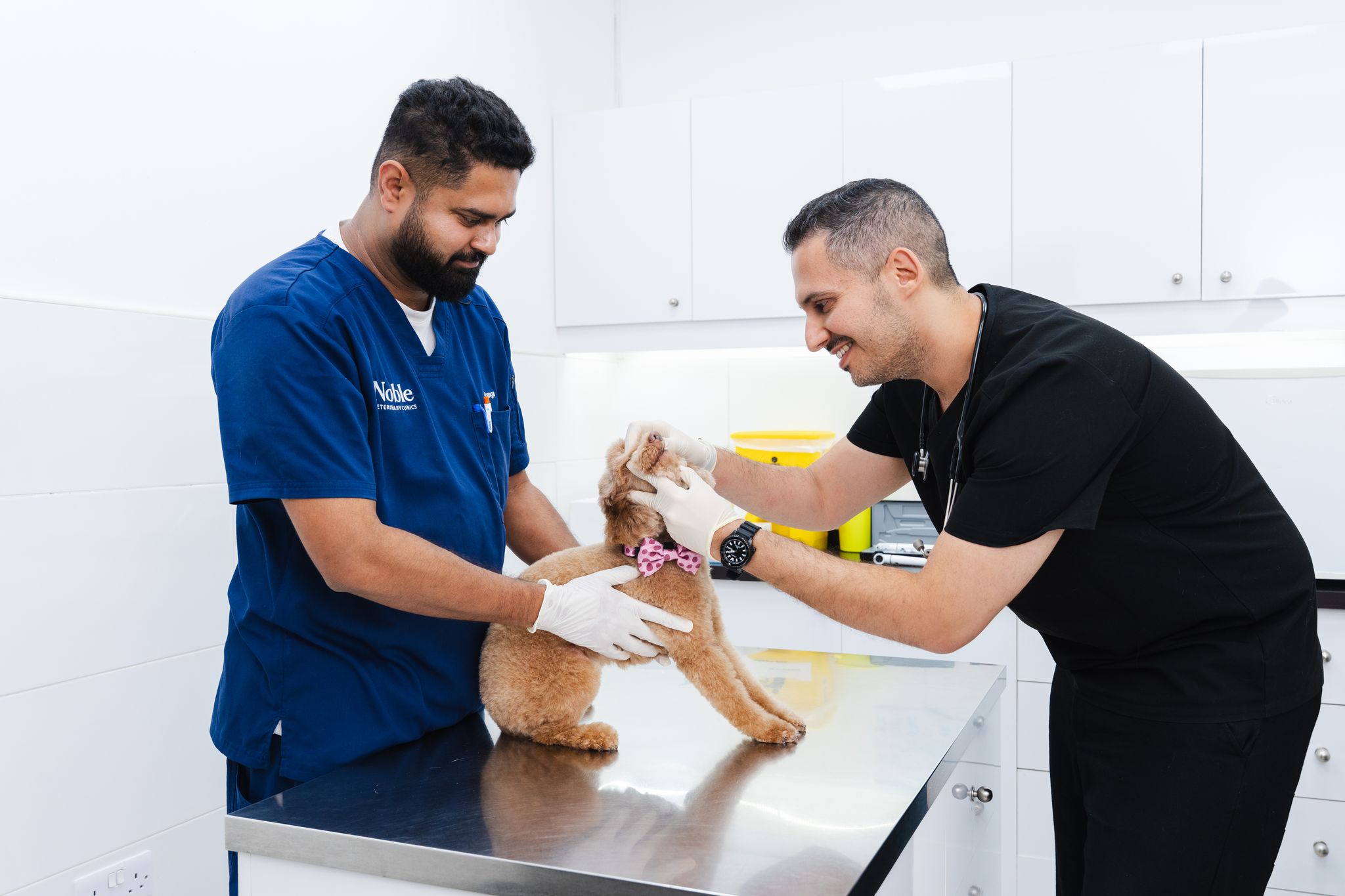


It often happens out of nowhere. One moment, your dog is perfectly calm. Then, suddenly, they freeze, extend their necks, and begin rapid, alarming snorting. It’s not quite a cough. Not quite a sneeze. It’s something else entirely.
You’ve probably seen it, and while it may look scary, it’s not dangerous. It’s usually short-lived and more common than people think. Still, they shouldn’t be ignored.
In this guide, we’ll walk you through everything you need to know about what it is, why it happens, and what to do.
What Is Reverse Sneezing in Dogs?
Reverse sneezing, what we call paroxysmal respiration in veterinary terms, is a reflex. Instead of pushing air out like a normal sneeze, your dog pulls it in sharply through the nose. It sounds strange. Here, dogs will usually:
Stand still and look surprised
Stretch their necks forward
Make repeated snorting or gagging sounds
Breathe in quickly through their noses
While the noise can be intense, most episodes last under 30 seconds and resolve without any intervention. It’s not usually an emergency.
What Causes Reverse Sneezing in Dogs?
Let’s talk about what usually triggers reverse sneezing in dogs. Some causes are easy to detect while others are sneaky. Here are the common reasons why your dog may start reverse sneezing:
Environmental Irritants
These are things in the air that can irritate your dog’s nostrils, which can be:
Dust, pollen, and mold
Smoke or strong perfumes
Chemical or cleaning products
Breed
Some breeds are more likely to reverse sneeze due to the shape of their faces and airways. This means that small and brachycephalic breeds are prone to this condition, which includes:
French Bulldogs
Boston Terriers
Physical Irritation
Anything that may tickle or bother your dog’s throat can set off an episode. This may include:
Pulling on the leash too hard
Eating or drinking too fast
Foreign material in the throat
Medical Issues
In some cases, reverse sneezing in dogs may be linked to a medical problem, such as allergies, respiratory infections, and nasal tumors. A common indicator is when the reverse sneezing becomes too frequent.
Emotional Reactions
Additionally, dogs may also reverse sneeze when they get too excited, get stressed or anxious, or get overstimulated. The strong emotions cause the rapid breathing that irritates the throat and soft palate, resulting in the muscle spasms that cause the reflex.
What Should You Do If Your Dog Starts Reverse Sneezing?

During an episode, your calm energy is the most helpful medicine. Here's what we recommend:
Massage the throat gently to help relax spasms
Offer water to help clear irritants
Briefly cover your dog’s nostrils to encourage a deep breath
Gently blow on their nose to encourage swallowing and breathing
Move them to fresh air or a quiet space
Avoid touching their mouth or trying to “shake it off”
Don’t force open the jaw
When Can Reverse Sneezing Become Dangerous?
Most episodes will be harmless, just surprising. However, there will be signs to consider to know if they’re serious.
Reverse Sneezing | More Concerning Signs |
|---|---|
Episodes lasting under one minute | Episodes lasting more than one minute |
Short bursts of snorting | Wheezing with blue gums |
Conscious and responsive | Collapsing or fainting |
No nasal discharge | Blood or thick mucus from the nose |
Normal breathing post-episode | Labored or ongoing respiratory strain |
Some conditions resemble reverse sneezing but carry far more serious consequences:
A collapsing trachea creates a honking cough, often in small breeds
Persistent sneezing in dogs can point to nasal tumors or chronic rhinitis
A foreign object in the throat may cause gagging or vomiting
Kennel cough, asthma, or infections also cause coughing or respiratory noise
If you notice any of these signs, then be sure to bring your dog to our clinic. We’ll help get them back on their feet.
How Do Vets Diagnose Reverse Sneezing in Dogs?
If you notice any significant complications, bring them over. At the clinic, we’re going to start with a physical exam and a review of your dog’s medical history. We may ask questions about how often it happens, how long it lasts, and what your dog was doing at the moment.
If you have a video of your dog’s reverse sneezing, then it’s a helpful tool for diagnosis. For further tests, we’ll focus on laboratory tests such as:
Bloodwork. Helps detect markers for infections, inflammation, and allergies.
X-rays. Used to check the chest and airway, making sure the lungs and breathing structures look normal.
Allergy Testing. Done by sedating the dog and shaving a patch of hair. Next, a small amount of allergens is injected to check for reactions.
Rhinoscopy. A procedure in which our vets use a small camera to look inside your dog’s nasal passageways.
How Is Reverse Sneezing in Dogs Treated?

In most cases, we won’t need to treat it. However, in cases when the episodes become frequent or complications arise, then we will recommend the appropriate solutions. Medications will be prescribed to target specific situations, such as allergies, infections, and parasites.
If there are any foreign objects along the nasal passageways, we’ll take the steps to remove them safely and effectively. We may also suggest lifestyle changes to reduce the chances of reverse sneezing happening again.
How to Prevent Reverse Sneezing in Dogs?
The main steps revolve around minimizing the exposure and creating a much more comfortable environment for your dog.
Avoid airway irritants
Keep your dog away from smoke, strong perfumes, chemicals, cleaning products, and dusty areas. Use an air purifier at home to keep the air clean.
Switch to a harness
Collars can apply pressure on your dog’s throat, so we recommend using a harness instead. A well-fitted harness works better and is more comfortable for your dog.
Slow down eating and drinking
Try using a slow-feeder bowl or offer smaller portions at a time so you can control how fast your dog eats and drinks.
Manage allergies
If you notice any reactions, then be sure to talk to us. We’ll help you manage your dog’s allergies before they flare up.
“Every little thing is always worth the checkup. Our dogs deserve the best.”
- Dr. Rokas Proscevicius
Final Thoughts on Reverse Sneezing
While reverse sneezing in dogs can happen any time, it’s often harmless. However, it’s still good to understand the potential complications that may arise in case something bad really happens. Now that you know more about it, you can get your best friend the help they need when they need it.
Frequently Asked Questions
Share










